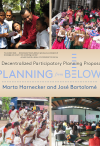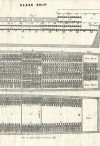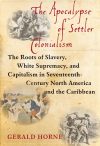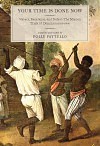Caribbean

Political scientist, author, and activist, Marta Harnecker has devoted her life to collaborating in building radical democracy in Latin American communities where people have, for generations, experienced crushing poverty and a near complete loss of control over their lives. In South America and the Caribbean, but especially in Cuba and Venezuela, Harnecker has worked directly with disenfranchised workers and peasants. From the ground up, she has helped to build new structures and methods that bring to virtually unknown towns and provinces the full meaning of the Bolivarian revolution. In this latest work, Harnecker, with Spanish economist José Bartolomé, shares some of her wisdom on how this is being done, and how communities everywhere can gain empowerment. | more…

From the sixteenth through the nineteenth centuries, millions of Africans and Native Americans were enslaved and traded by European settlers in the Americas. This story of slavery, colonialism, and emerging capitalism—and their handmaiden, white supremacy—is integral to that of modernity itself. | more…

Virtually no part of the modern United States—the economy, education, constitutional law, religious institutions, sports, literature, economics, even protest movements—can be understood without first understanding the slavery and dispossession that laid its foundation. To that end, historian Gerald Horne digs deeply into Europe’s colonization of Africa and the New World, when, from Columbus’s arrival until the Civil War, some 13 million Africans and some 5 million Native Americans were forced to build and cultivate a society extolling “liberty and justice for all.” | more…

Maroons, self-organized communities of runaway slaves, existed wherever slavery was present. One of the most vital and persistent maroon communities was tucked away in the mountainous rainforests on the Caribbean island of Dominica, at the time a British colony. This “state within a state,” as the colonial authorities tellingly described it, posed a direct challenge to the slavery system, and before long, the Dominican Maroons rose up to challenge the British Empire. Ultimately, they were captured and put on trial. Here, for the first time, are primary documents, carefully edited and contextualized, that richly present the voices and experiences of the Maroons—in resistance and defeat. | more…
The name “Walter Rodney” has receded from public memory in the last few decades. Only yesterday, it seems to this reviewer, Rodney was the most promising young political scholar of Afro-Caribbean origin, influential from parts of Africa to Britain and North America, not to mention his home Guyana, as well as Jamaica, Trinidad, and other anglophone islands. He was revered: great things were expected of him, as great things were expected of the new phase of regional history in which independence had been achieved and masses mobilized for real change. | more…
The nations of the Caribbean have the world’s second highest HIV infection rates, after sub-Saharan Africa. One Caribbean nation, Cuba, however, has largely escaped the disease with only a 0.07 percent infection rate, one of the lowest infection rates in the world. On July 15 Cuba announced at a meeting with its counterparts from the 15-nation Caribbean Community (Caricom) that it was launching an initiative to help the other Caribbean nations fight HIV/AIDS by providing them with antiretroviral drugs at below market prices, as well as doctors and instruction in public health methods for combating the AIDS pandemic. Cuba’s offer to help is viewed as nothing less than “spectacular” by the other Caribbean nations | more…



